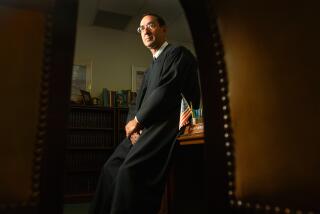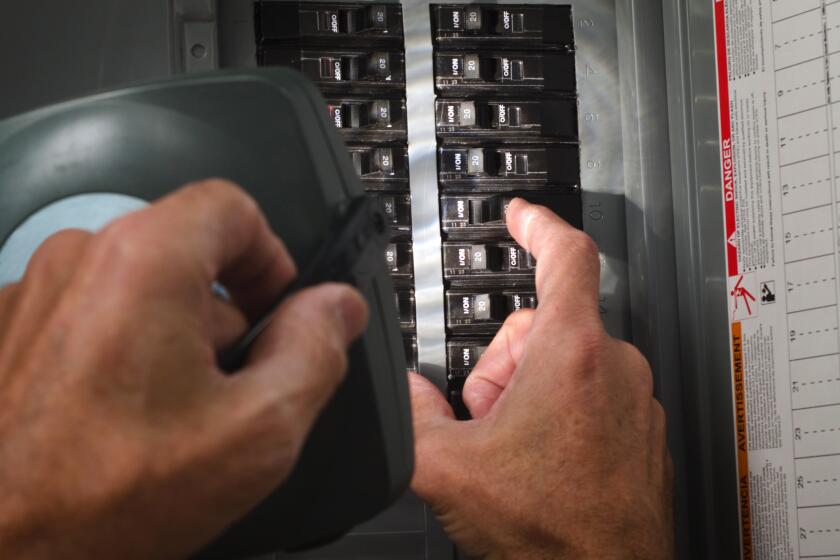Riverside court order would restrict juveniles’ visits with attorneys
A judge in Riverside County is proposing to bar youth in juvenile delinquency proceedings from meeting face-to-face with their attorneys at courthouses, raising objections from attorneys who represent those youth.
A draft blanket order by Judith Clark, presiding judge of Riverside’s Juvenile Court, would not allow so-called contact visits between attorneys and their young clients at two Riverside courts that hear juvenile cases. Only in exceptional circumstances could a judge, at his or her discretion, permit such a visit.
“The purpose of this order … is to ensure that juvenile detainees have meaningful access to the courts while the court maintains the security and safety of all court users,” the draft order says.
Juvenile defense organizations and civil liberties advocates say the order would violate the juveniles’ constitutional right to due process.
“For now over 50 years the courts have recognized that kids in delinquency proceedings have a right to counsel and to effective assistance of counsel,” said Ian Kysel, staff attorney at the American Civil Liberties Union of Southern California. The ACLU is one of several organizations that submitted letters to the court opposing the proposal.
Under the order, Kysel said, youngsters would not be allowed face-to-face visits at crucial moments, such as deciding whether to accept a plea offer or telling their attorneys about an important detail relevant to their case. Instead, they would have to talk to their lawyers in open court or try to persuade a judge to allow a private meeting, which could mean having to disclose sensitive information, he said.
“The blanket order would prevent kids from meeting with their attorneys in the very context where they need the guidance of counsel the most,” Kysel said.
The order says the Riverside County Probation Department provides “ample opportunity” for contact visits at the county’s Juvenile Hall. It notes that preliminary determinations over where a minor charged with a serious felony should be prosecuted are now heard in juvenile court. And, it adds, the department has “insufficient resources” to provide personnel to supervise contact visits at the courthouse.
The order gives attorneys the option to meet with clients in a courthouse interview room, where they would be separated by a partition and talk to each other using a phone.
Defense attorneys say that’s not good enough, particularly when representing youth, who often face language barriers, disabilities and mental health disorders.
“Effective communication requires contact visitation,” said Mary Ann Scali, executive director of the National Juvenile Defender Center, which also submitted a letter opposing the proposal. “We know that when we are talking with young people it’s important that we have eye contact, that being in their physical presence and space is important in terms of trust. It’s also critically important in terms of confidentiality.”
Scali, whose group has studied minors’ access to counsel in 24 states, said courthouses in only a few states put up physical barriers between attorneys and their clients.
“I cannot think of a place where the attorney has to ask a judge for permission to have a contact visit,” she said. “It would really make Riverside an outlier.”
Clark is expected to finalize the order within the next week, a court spokeswoman said.
Twitter: @AgrawalNina
More to Read
Sign up for Essential California
The most important California stories and recommendations in your inbox every morning.
You may occasionally receive promotional content from the Los Angeles Times.







